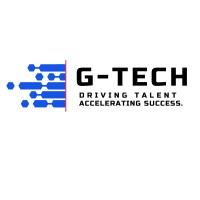

Insight Global
Lead Azure Engineer
⭐ - Featured Role | Apply direct with Data Freelance Hub
This role is for a Lead Azure Engineer on a 1-year contract, 100% remote, with a pay rate of "X". Requires 5+ years of experience in cloud architecture, Azure DevOps, CI/CD pipelines, and Infrastructure as Code (Terraform, ARM).
🌎 - Country
United States
💱 - Currency
$ USD
-
💰 - Day rate
Unknown
-
🗓️ - Date
October 2, 2025
🕒 - Duration
More than 6 months
-
🏝️ - Location
Remote
-
📄 - Contract
Fixed Term
-
🔒 - Security
Unknown
-
📍 - Location detailed
Greater Chicago Area
-
🧠 - Skills detailed
#Compliance #SAML (Security Assertion Markup Language) #Virtualization #Monitoring #Scala #Kerberos #Python #DevOps #Storage #Vault #Clustering #Docker #LDAP (Lightweight Directory Access Protocol) #Containers #Azure Resource Manager #Linux #Documentation #Azure #Automation #Firewalls #Azure cloud #Databricks #Leadership #Microsoft Azure #Cloud #Disaster Recovery #Security #Scripting #Logging #Database Management #Databases #Azure DevOps #IP (Internet Protocol) #Infrastructure as Code (IaC) #Kubernetes #Deployment #Bash #Terraform
Role description
Lead Azure Engineer
1 Year Contract + extensions
100% Remote
Skillset Required:
• Design, architect, and implement scalable and reliable cloud solutions on the Azure platform, leveraging a variety of Azure services and technologies.
• Collaborate with cross-functional teams to gather requirements, define architecture designs, and develop technical solutions that meet business objectives.
• Lead the implementation of CI/CD pipelines using Azure DevOps, automating build, test, and deployment processes for cloud-native and hybrid applications.
• Define infrastructure as code (IaC) using ARM templates, Terraform, or other relevant technologies to ensure consistency, repeatability, and scalability in deployments.
• Conduct architecture reviews, provide technical guidance, and mentor team members on best practices for Azure cloud architecture and DevOps methodologies.
• Stay updated on emerging Azure technologies, trends, and best practices, and continuously evaluate and recommend new solutions to enhance our cloud capabilities.
Description:
An Azure Engineer with DevOps experience is a professional who specializes in designing, implementing, and managing the development and deployment processes using Microsoft Azure and DevOps principles. They have a deep understanding of Azure services and tools, as well as expertise in implementing CI/CD pipelines, infrastructure automation, and monitoring and troubleshooting applications and infrastructure. They are skilled in using Azure DevOps tools like Azure Pipelines, Azure Resource Manager (ARM) templates, and Azure Monitor. Additionally, they have knowledge of configuration management tools, security best practices, and compliance requirements. Their role involves collaborating with development teams, ensuring efficient software delivery, and maintaining documentation and training for Azure DevOps processes. Overall, an Azure Engineer with DevOps experience combines Azure expertise with DevOps principles to enable seamless and efficient software development and deployment on the Azure platform.
Core Responsibilities
• Demonstrate knowledge of cloud architecture and implementation features (OS, multi-tenancy, virtualization, orchestration, elastic scalability).
• Hands-on experience on provisioning and configuring IaaS and PaaS services like virtual machines, app services, databases, storage account, virtual network, function app, data factory, key vault, service bus, event grid, databricks etc.
• Expertise with Infrastructure as Code automation tools and languages (Terraform, ARM, PowerShell, etc.) is highly desired.
• Demonstrate knowledge of Azure DevOps and setting up CI/CD pipelines.
• Experience with setting up Logging and Monitoring solutions using Log Analytics workspace, App Insights and Azure Monitor.
• Demonstrate ability to back decisions with research and the “why,” and articulate several options, the pros and cons for each, and a recommendation.
• Understanding of design patterns and solutions for high availability and disaster recovery for cloud applications.
• Troubleshoot and resolution of complex problems within the infrastructure.
• Work on designing/implementing/automation procedures for deployment, configuration, patching and upgrading of systems and applications.
• Conduct analysis of production systems and performance testing results to identify areas of improvement within the application or infrastructure.
• Work closely with vendors, internal groups and outside agencies to provide technical leadership and solutions.
• Independently analyze, solve, and correct issues in real time, providing problem resolution end-to-end.
• Document implementation details for Operational teams and provide technical support as needed.
• Share domain and technical expertise, providing technical mentorship and cross-training to other peers and team members.
• 5+ years of experience spanning at least two IT disciplines, including technical cloud architecture, network management, application development, middleware, database management or operations.
• Exposure to multiple, diverse technologies and processing environments.
• Knowledge of all components of a solution architecture.
• Strong client-facing consultative skills, able to act as a customer advocate.
• Understanding of Windows and Linux Server architectures.
• Experience with containers (Docker) and orchestration (Kubernetes) technologies.
• Familiar with one or more server-side scripting languages (e.g. PowerShell, Python, Bash).
• Understanding of concepts like High Availability, Clustering, Failover and Disaster Recovery in the Cloud.
• Understanding of application layer protocols, such as HTTP/S, TCP/IP, UDP and Web sockets.
• Demonstrated abilities with SSO-related software such as ADFS, Ping Identity, OpenSSO, oAuth, Okta or other SAML & OpenID Connect providers.
• Understanding of Web application security and concepts, such as Ticketing, header injection, XSS, SSL, HTTPS, Kerberos, certificates, Active Directory, LDAP, reverse proxies and firewalls.
Lead Azure Engineer
1 Year Contract + extensions
100% Remote
Skillset Required:
• Design, architect, and implement scalable and reliable cloud solutions on the Azure platform, leveraging a variety of Azure services and technologies.
• Collaborate with cross-functional teams to gather requirements, define architecture designs, and develop technical solutions that meet business objectives.
• Lead the implementation of CI/CD pipelines using Azure DevOps, automating build, test, and deployment processes for cloud-native and hybrid applications.
• Define infrastructure as code (IaC) using ARM templates, Terraform, or other relevant technologies to ensure consistency, repeatability, and scalability in deployments.
• Conduct architecture reviews, provide technical guidance, and mentor team members on best practices for Azure cloud architecture and DevOps methodologies.
• Stay updated on emerging Azure technologies, trends, and best practices, and continuously evaluate and recommend new solutions to enhance our cloud capabilities.
Description:
An Azure Engineer with DevOps experience is a professional who specializes in designing, implementing, and managing the development and deployment processes using Microsoft Azure and DevOps principles. They have a deep understanding of Azure services and tools, as well as expertise in implementing CI/CD pipelines, infrastructure automation, and monitoring and troubleshooting applications and infrastructure. They are skilled in using Azure DevOps tools like Azure Pipelines, Azure Resource Manager (ARM) templates, and Azure Monitor. Additionally, they have knowledge of configuration management tools, security best practices, and compliance requirements. Their role involves collaborating with development teams, ensuring efficient software delivery, and maintaining documentation and training for Azure DevOps processes. Overall, an Azure Engineer with DevOps experience combines Azure expertise with DevOps principles to enable seamless and efficient software development and deployment on the Azure platform.
Core Responsibilities
• Demonstrate knowledge of cloud architecture and implementation features (OS, multi-tenancy, virtualization, orchestration, elastic scalability).
• Hands-on experience on provisioning and configuring IaaS and PaaS services like virtual machines, app services, databases, storage account, virtual network, function app, data factory, key vault, service bus, event grid, databricks etc.
• Expertise with Infrastructure as Code automation tools and languages (Terraform, ARM, PowerShell, etc.) is highly desired.
• Demonstrate knowledge of Azure DevOps and setting up CI/CD pipelines.
• Experience with setting up Logging and Monitoring solutions using Log Analytics workspace, App Insights and Azure Monitor.
• Demonstrate ability to back decisions with research and the “why,” and articulate several options, the pros and cons for each, and a recommendation.
• Understanding of design patterns and solutions for high availability and disaster recovery for cloud applications.
• Troubleshoot and resolution of complex problems within the infrastructure.
• Work on designing/implementing/automation procedures for deployment, configuration, patching and upgrading of systems and applications.
• Conduct analysis of production systems and performance testing results to identify areas of improvement within the application or infrastructure.
• Work closely with vendors, internal groups and outside agencies to provide technical leadership and solutions.
• Independently analyze, solve, and correct issues in real time, providing problem resolution end-to-end.
• Document implementation details for Operational teams and provide technical support as needed.
• Share domain and technical expertise, providing technical mentorship and cross-training to other peers and team members.
• 5+ years of experience spanning at least two IT disciplines, including technical cloud architecture, network management, application development, middleware, database management or operations.
• Exposure to multiple, diverse technologies and processing environments.
• Knowledge of all components of a solution architecture.
• Strong client-facing consultative skills, able to act as a customer advocate.
• Understanding of Windows and Linux Server architectures.
• Experience with containers (Docker) and orchestration (Kubernetes) technologies.
• Familiar with one or more server-side scripting languages (e.g. PowerShell, Python, Bash).
• Understanding of concepts like High Availability, Clustering, Failover and Disaster Recovery in the Cloud.
• Understanding of application layer protocols, such as HTTP/S, TCP/IP, UDP and Web sockets.
• Demonstrated abilities with SSO-related software such as ADFS, Ping Identity, OpenSSO, oAuth, Okta or other SAML & OpenID Connect providers.
• Understanding of Web application security and concepts, such as Ticketing, header injection, XSS, SSL, HTTPS, Kerberos, certificates, Active Directory, LDAP, reverse proxies and firewalls.






